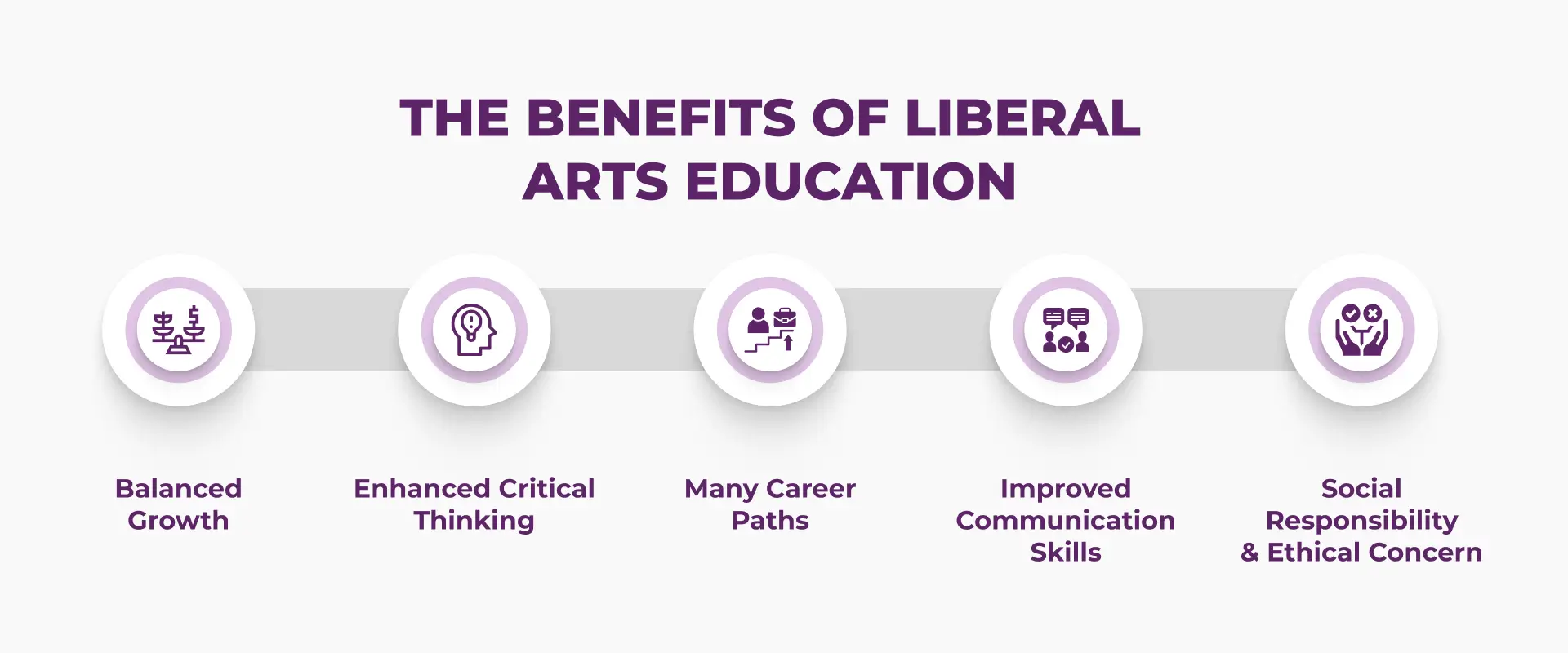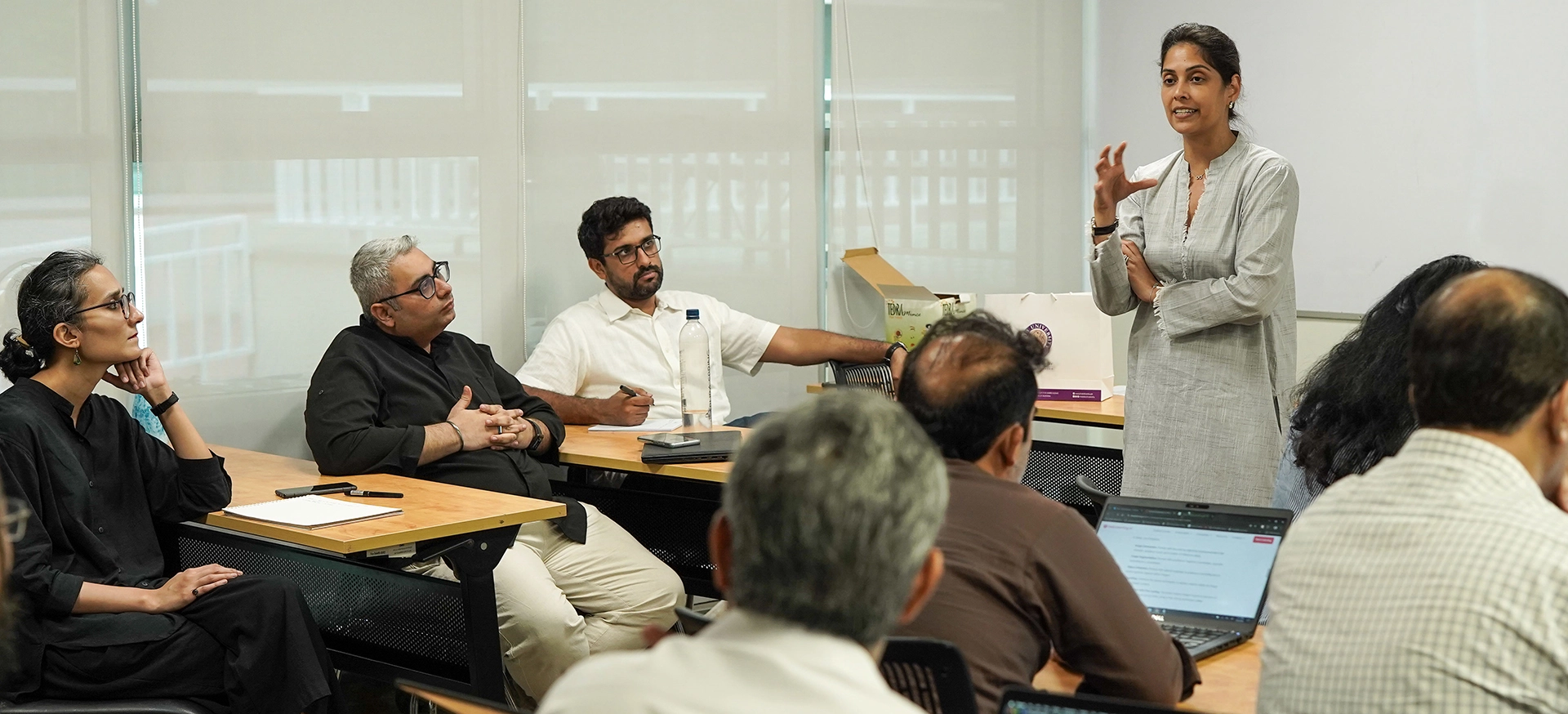The Importance of Liberal Arts Education in Shaping Well-Rounded Professionals

Amidst the challenges of globalization and fast-paced modern society, one might question the purpose of a liberal arts education. Does pursuing a wide range of fields make sense in a job sector that often prioritizes technical skills? The answer is a resounding yes. The importance of liberal arts education lies in its ability to develop versatile, innovative, and socially responsible individuals, equipped to pursue various career paths.
Understanding Liberal Arts Education: What Sets It Apart?

Liberal arts education encompasses a broad spectrum of subjects, including comparative humanities, social sciences, natural sciences, and fine arts. This wide-ranging curriculum motivates students to delve into fields such as literature, history, philosophy, and social sciences. Students gain an organized knowledge base that encourages them to think critically, enabling them to utilize their skills whenever needed.
Unlike conventional education systems that focus on specialization, liberal arts emphasizes a multidisciplinary approach and social responsibility, equipping learners to address issues holistically. This orientation allows graduates to handle the demands of the 21st-century workplace, which increasingly values adaptability, integrative thinking, and the ability to navigate complex social dynamics.
Why Is Liberal Arts Education Important in the 21st Century?
In today’s world, the significance of liberal arts education has only grown. As societies become more interconnected, there is a growing need not only for technical expertise but also for individuals who can think critically, communicate effectively, and remain flexible. The ability to navigate new frontiers in technology and address global issues is essential. Liberal arts education fosters these skills by teaching students the type of thought processes that are crucial in modern organizations.
Moreover, in an era marked by automation, “human skills” such as creativity, empathy, and ethical reasoning—traits nurtured in liberal arts education—remain indispensable. Liberal arts equip graduates to solve problems and communicate effectively, making them invaluable in environments for complex social interaction. By understanding the dynamics of the social market, they can thrive in roles where integrating diverse aspects is essential.
The Benefits of Liberal Arts Education

Balanced Growth
Liberal arts education extends beyond academics, aiming to foster well-rounded growth. Students gain a comprehensive understanding of the world as they engage with subjects like literature, history, natural sciences, and the arts. This model inspires intellectual curiosity, allowing students to think beyond a single discipline. They learn to navigate various ideas and perspectives, broadening their capacity for critical thinking and problem-solving.
Enhanced Critical Thinking
Liberal arts programs place a strong emphasis on critical thinking and analytical abilities, essential skills in nearly every profession. Practitioners in these fields often face complex challenges and must make informed decisions. Liberal arts education develops the capacity for thoughtful analysis, enabling graduates to assess problems from multiple angles and devise effective solutions.
Many Career Paths
One of the most compelling arguments in favor of a liberal arts education is its practical value across numerous fields. The list of career paths available to liberal arts graduates is extensive, encompassing public relations, education, research, politics, and more. A liberal arts degree prepares students for a variety of roles in diverse industries, as they possess transferable skills that allow them to adapt and succeed in different professional environments.
Improved Communication Skills
Courses in the humanities and social sciences equip students with strong communication skills. Liberal arts graduates can convey their ideas coherently and persuasively, an invaluable trait in any job setting. Whether working within teams or leading projects, the ability to articulate thoughts clearly and influence others is essential.
Social Responsibility and Ethical Concern
Through studying subjects like philosophy, sociology, and environmental studies, liberal arts students develop a sense of social responsibility and ethical awareness. They learn to respect diverse perspectives and consider the societal impact of their actions. This ethical grounding is particularly relevant in today’s interconnected world, where professionals must navigate issues related to social justice, sustainability, and corporate responsibility.
Liberal Arts at Habib University: Developing Versatile Individuals

In Pakistan, Habib University stands out as a strong advocate of liberal arts education and is often regarded as the best university in Pakistan for fostering intellectual and social growth. Habib University students are not just passive learners; they apply their knowledge practically and grasp the underlying principles of their studies. They understand their societal roles and are focused on meaningfully contributing to their communities.
The liberal arts curriculum at Habib University aims to develop well-rounded professionals who can tackle challenges from a balanced perspective. By exposing students to interrelated subjects, the curriculum helps graduates build careers that are adaptable and resilient. This balance enables students to specialize in specific areas while also developing competencies across multiple fields. It prepares them not only for their first job but also for the evolving demands of future roles.
At What Level Do Employers Appreciate Liberal Education Most?
Employers are increasingly recognizing the value of liberal arts education, especially in complex work environments that involve interconnected activities. Employees with a liberal arts background are often key players in the corporate world due to their ability to think critically, solve problems, and communicate effectively across teams and cultures. Their unique skill set makes them valuable assets in industries where adaptability and collaboration are crucial.
Beyond practical skills, liberal arts education nurtures creativity and resilience. In a business landscape characterized by rapid change, employers appreciate graduates who can view issues from different perspectives and drive innovation. These qualities allow liberal arts graduates to help organizations remain competitive and responsive to evolving challenges.
The Future of Liberal Arts Education
While liberal arts education faces criticism as STEM fields gain prominence, its value remains clear. As globalization and technological advancements reshape industries, the need for liberal arts graduates is expected to grow. Liberal arts education provides a foundation for both self-development and career success in a variety of fields.
Liberal arts graduates are equipped to work with technology responsibly, understanding its social implications and ethical dimensions. This perspective is essential as industries seek individuals who can integrate technological expertise with a deep understanding of human values.
Conclusion: Liberal Arts Education as a Path to Lifelong Success
We cannot overstate the importance of liberal arts education in achieving professional and personal goals. This educational approach prepares students for specific careers and instills the ability to think creatively and make ethical decisions. Liberal arts graduates are well-suited to meet the demands of modern workplaces, where these skills are increasingly necessary.
Institutions like Habib University are pivotal in changing perceptions about liberal arts education. For students and parents seeking a holistic education that fosters intellectual growth, social responsibility, and adaptability, the liberal arts offer a promising path. As Pakistan and the world recognize the value of such education, liberal arts graduates are ready to lead and create positive change across industries.





